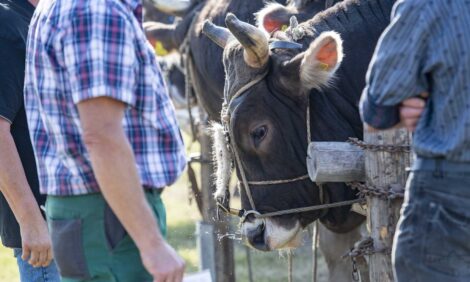



Queensland Drought Intensifies
AUSTRALIA - Over 65 per cent of the state of Queensland has been officially drought declared, writes Gemma Hyland.Despite reports of rainfall over the weekend, the extent of the dry conditions, compounded by low market prices has put considerable financial stress on many producers, with some cattle producers expected to be forced to exit the industry.
The drought that is currently affecting the vast majority of Queensland has been described by many as the worst in living memory.
From 2010 to 2012 most of Queensland experienced a series of above average rainfall years with the result that cattle numbers increased to levels not seen since the mid-1970s.
However the wet season of 2012-13 was considered a failure and record high summer temperatures combined to limit pasture growth significantly.
It is reported that a band of showers along the Flinders Highway over the weekend has produced decent falls for parts of north-west Queensland.
The weather bureau says a trough is developing and the scattered showers and storms should continue in parts of the north-west over the next few days.
In response to the drought, USDA reports cattle producers began selling large numbers of cattle much earlier in the year than normal which depressed market prices.
Because the dry conditions are so widespread there have been limited opportunities for producers to ‘buy grass’ by purchasing additional land, contract grazing (agistment) of cattle, or herding.
There have been cases of producers selling cattle for less than the cost of the freight to get them to sale yards, resulting in a net negative return.
Compounding these factors has been a sharp rise in the cost of fodder supplements such as cotton seed (+204 per cent since April) and molasses.
Cottonseed meal has been particularly limited in supply due to high export demand for the product from New Zealand during dry conditions earlier in 2013. The quality of pasture in many areas has now declined to the point that traditional protein supplements are insufficient and livestock require energy supplementation as well.
Until the recent start of the 2013 grain harvest stocks of hay and grain were very low and prices high.
A significant portion of the grain harvest in New South Wales and Victoria has been downgraded due to frost which will increase stocks of feed-grain somewhat but even once significant rain is received demand for these products will continue for several weeks at least.
Government support
The Queensland government has put in place a number of measures to support producers affected by the drought conditions.
These include rebates for the construction of livestock watering points, freight subsidies, land rent deferral and concessions on fees for vehicle registrations and permits.
Permits have also been granted to allow cattle to graze in a limited number of national parks. There was significant public opposition to this move, particularly from environmental groups.
However, the government defended the policy based on the fact that the areas in question had only recently been converted from cattle production areas to national parks.
The Queensland Department of Health is also providing mental health workshops and counseling services.



